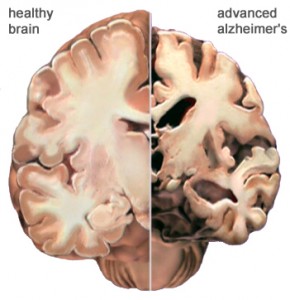If your father is obese at the time of conception, you might get his blue eyes and blonde hair, but you can get more other characteristics, like a wider than desired waistline and an increased risk of developing metabolic disorders, such as diabetes. This is true most frequently in daughters, but their sons also have an increased risk of developing metabolic disorders, such as diabetes.
Category Archives: Diabetes News
Can Diabetes be Prevented by Late or Early Exposure to Solid Foods in Infancy?
In a study published by JAMA Pediatrics both early and late exposure to solid foods appears to be connected with insulin-dependent Type 1 diabetes. Brittni Frederiksen, M.P.H., of the Colorado School of Public Health, University of Colorado, Aurora, and colleagues, reviewed the infants’ perinatal and infant exposure, particularly in early infant diet, in relationship to the diagnosis of Type 1 diabetes.
Diabetes In The UK

Diabetes In The UK
Diabetes is a worldwide disease, spreading like an uncontrollable wildfire. Lifestyle, economics, environment, country – all these seem to make no difference when it comes to diabetes striking, both Type 1 and Type 2.
A New Potential Type 2 Diabetes Breakthrough
More than 26 million Americans have type 2 diabetes and while there have been many breakthroughs with medical research, these has been no cure found for diabetes. Now, researchers at the Harvard Stem Cell Institute (HSCI) have found a hormone that promises new open pathways for diabetic treatment. Researchers also believe that the hormone can provide a positive treatment for those suffering from type 1 or juvenile diabetes as well.
Can Grapes Protect Against Metabolic Syndrome-Related Organ Damage?
According to research that was presented at the Experimental Biology Conference in Boston, eating grapes may protect against the damage that is created by the progression of metabolic syndrome. It is the natural components called polyphenols that are thought to bring these beneficial effects.
The study, which was led by chief investigator E. Mitchell Syemour, Ph.D of the University of Michigan Health System included the effects of a high fat, American diet. One study was created with the use of grapes and one was implemented without them. The fat tissue, heart, kidneys, and liver was all studied in obesity-prone rats. Grapes were used in different varieties (green/red/black) and consisted of a freeze-dried grape powder. This powder was integrated into the animal’s diet for 90 days.
FreeStyle InsuLinx Glucose Meter Recall

FreeStyle InsuLinx Glucose Meter Recall
Recently, Abbott Laboratories issued a recall on all FreeStyle InsuLink Glucose Meters due to the fact they are displaying and storing incorrect test results for extremely high blood sugar levels.
It is very important for glucose meters to read correctly since it can jeopardize a person’s life who has diabetes. When a diabetic checks their blood sugar, they are making sure that it is not too high. If it is high, they need to treat it immediately. The problem with these meters is that they are not logging the right information, which can lead to injury and/or death.
What Dominates Diabetes Research, Prevention or Drug Therapy?

What Dominates Diabetes Research, Prevention or Drug Therapy?
With all the news about drug therapy, many researchers are beginning to wonder what is being done to stop diabetes from happening in the first place. Studies show, not much.
According to a Duke Medicine study, research for diabetes is far more focused on drug therapy than it is on taking the preventative measures to stop diabetes in its tracks. While also excluding older people and children from gaining better management for the disease.
Type 2 Diabetes Drug Class Reducing Heart Failure
According to a study at the Henry Ford Hospital in Detroit, a group of medications that lowers blood sugar in diabetic patients is also helping to protect them against heart failure as well.
Henry Ford researcher and cardiologist David Lanfear, M.D., lead author of the study said, “People with diabetes are at risk for developing heart failure. Diabetic adults die of heart disease two to four times more than those without diabetes.
New Type 2 Diabetes Drug Found To Reduce Chest Pain
A common anti-anginal drug has been found to reduce the chest pain that many people with type 2 diabetes suffer from. According to research that was presented to the American College of Cardiology’s 62nd Annual Scientific Session., the drug also appears to have a more pronounced effect with those who have poorer glucose control.
New Diabetic Study Shows Drug Can Slow Alzheimer’s Disease
New Jersey Institute for Successful Aging (NJISA) at the University of Medicine and Dentistry of New Jersey (UMDNJ)-School of Osteopathic Medicine’s Robert Nagele, PhD, led a research team that has demonstrated that the anti-atherosclerosis drug darapladib can reduce leaks in the blood brain barrier. These findings open up quite a few possibilities for new drug therapies to prevent the onset of Alzheimer’s disease.
The researchers were able to find this new drug theory through an a study that involved the use of darapladib in animal models that had been stimulated to develop diabetes mellitus and hypercholesterolemia (DMHC), which are both huge risk factors for developing Alzheimer’s disease.






